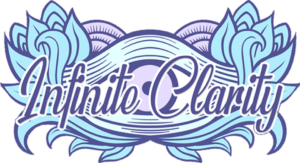Building upon its ongoing commitment to being a positive force for beauty and business in the world, P&G Beauty partnered with WWD this spring to launch the Fairchild Founders Fund: DE&I Edition.
This opportunity was open to people of color and other demographically diverse groups from start-ups, entrepreneurial brands, agencies, retailers and suppliers in fashion apparel, retail, footwear, beauty and wellness with the chance to earn a monetary grant, editorial spotlights and introductions to experts in the industry that make up the program’s council of judges.
The panel of judges included Andrea Wilkerson, Brand Vice President, Analytics & Insights at P&G Beauty Global Skin & Personal Care; Kelly Vanasse, CCO at P&G Beauty, Grooming & Health; Jenny B. Fine, Executive Editor at WWD and Beauty Inc; Tara Donaldson, Executive Editor at WWD and Head of DE&I at Fairchild Media, and Arthur Zaczkiewicz, Executive Editor, Strategic Content Development at WWD.
Following a review of applications across many industries, the Fairchild Founder’s Fund has announced the finalists, in no particular order, are AskAliesh, Oak & Acorn and MisTeePRO.
All applications were judged against a range of criteria that focused on how the business is putting DE&I at the heart of its practices; if the business model is providing a scalable solution that other businesses can model; and how the business plans to continue its growth.
ASKALIESH
Courtesy Image.
ASKALIESH
Founded in 2020 by Aliesh Pierce
Previously an esthetics educator, TEDx speaker, published textbook author and celebrity makeup artist, Aliesh Pierce founded AskAliesh, the inclusive skin care e-learning platform, with a solution first focus.
The platform, which was created mid-pandemic in a natural hair salon that specialized in locks, showed Pierce that the clientele was there and interested in natural products. Still, they needed an introduction to professional skin care.
“While AskAliesh is for all skin types, the concept was born with the mission to educate the Black and Brown community about the benefits of clean skin care,” said Pierce. “As an esthetics educator, my focus has always been to share my inclusive philosophy of professional skin care. I created an online education platform to introduce estheticians to my multi-ethnic approach, teaching them about the physiological differences and similarities in skin structure and function.”
Knowing that Ayurveda offers a potent botanical remedy, Pierce enlisted the help of a former colleague, Mohan Behl, a chemist from India, who creates herbal extracts. “Since Mohan is Muslim, he challenged me to go beyond the usual clean claims like vegan and gluten-free, to consider religious and cultural preferences as well,” said Pierce. “Working with partners who also care about DE&I has really taught me the importance of weaving DE&I into every aspect of my business.”
Because of Mohan’s input, the company is currently seeking Halaal certification. “I get to interact with a lot of different groups, making my world diverse and inclusive,” said Pierce. “I want to create skin care products that provide solutions for all ethnicities and cultures equally.”
This is something that Pierce suggested that other brands do as well as they look to foster greater diversity, equity and inclusivity.
“If [a brand] hasn’t been exposed to diverse ethnic groups, religions and varying gender identities, they first need to educate themselves,” said Pierce. “Exposure to more diverse communities broadens perspectives and deepens that sense of belonging. It’s important for brands on their DE&I journey to look for opportunities to integrate diverse staff members. Inviting more diverse voices to the table during the R&D phase makes it more likely that a product will have a global reach and appeal to the target audience.”
The esthetics education arm of AskAliesh has launched a training program that teaches diversity through the lens of skin physiology offering awareness conversations, intensive workshops and an extensive DEIB coaching program for companies seeking to shift their perspectives.
“We believe this will ultimately alter their approach to research and development, marketing, inclusivity for equitable access and the global marketplace,” said Pierce.
Looking ahead, Pierce said after securing distribution to launch the complete line of clinical-ayurvedic skin care products for a diverse range of skin types, she aims to introduce a line of skin-friendly color cosmetics.
“My roots as a celebrity makeup artist still run deep,” she said of her vision for color cosmetics. “Most color cosmetics for BIPOC populations are not formulated with clean ingredients. Our range of tinted moisturizers, serum foundations and lightweight CC powders continue the cosmeceutical-botanical story, blending extracts with clinical actives and pigments. These formulas are already in the works.”
OAK & ACORN
Founded in 2016 by Miko Underwood
The first sustainable denim-based brand in Harlem, New York, Oak & Acorn’s genderless, luxury denim pays homage to the untold history of the Black Indigenous American and enslaved Africans’ contributions that have shaped American manufacturing and American denim.
The brand’s founder, Miko Underwood, said she always knew she wanted to launch her own apparel brand – one that would propel the fashion industry into a more sustainable era where wellness, education, empowerment, cultural responsibility and accountability are at the forefront.
“After several years of working with large companies and leading their diverse portfolio of brands, I was inspired to form the holding company, 357 Brands, Inc in 2016,” said Underwood. “What I discovered was that I could create a business model that allows me to launch a diverse portfolio of successful, sustainable brands. With nearly 20 years leading, forecasting and presenting denim lifestyle collections as a designer and creative director, I hadn’t experienced anyone sharing the origin of jeans beyond the history of Levi’s.”
Underwood told WWD, the predominant narrative of jean making to date has not been inclusive of cultures and artisanal denim brands are often male-led. Moreover, through immense research, she discovered a “powerful untold origin story of American jeans.”
Throughout its product touchpoints and brand messaging Oak & Acorn has recounted historical moments in American history while raising awareness of organizations that support and empower impacted communities. Twenty percent of the brand’s signature collection goes to support initiatives of We Got Us Now Inc, the national non-profit organization that helps youth impacted by parental incarceration.
“I knew that my brand would pioneer an important space of representation within the denim community as a BIPOC, Woman-owned, genderless sustainable denim brand,” said Underwood. “I felt inspired to present a holistic perspective of the origin of jeans that included this segment of American culture. This knowledge, coupled with my vast experience of working on mass-market denim brands, inspired me to create the first sustainable denim brand in Harlem.”
Notably, Underwood told WWD, Oak & Acorn was one of six brands featured in Nordstrom NYC’s Black Founders x Center Stage Pop-Up in February 2020 and has benefited from Nordstrom’s Diversity, Inclusion & Belonging commitment to deliver $500M in retail sales from brands owned by, operated by or designed by Black and/or Latinx individuals by the end of 2025.
Sustainability has also stood as one of the company’s core values, which to Underwood means “being a responsible maker and steward of the community. As a brand, we see sustainability in 360 degrees, we look at it at each touchpoint from fabric to sourcing and traceability, social impact and education.
“I believe DE&I means ensuring the histories, traditions and expertise of creative communities are celebrated & reinforced. It means guaranteeing people are not only surviving but thriving from the work they do,” said Underwood. “The fashion ecosystem can burden our people, our climate and our soil. Our team is fortunate to work close in hand with strong institutions that are committed to regenerative farming practices, soil conservation, minimizing food apartheid through education and food share co-ops.”
Long-term, Underwood told WWD Oak & Acorn aims to “include building strategic co-branded collaborations, establish brick-n-mortar retail space and build brand extensions that focus on sustainability, craftsmanship, innovation and job creation. “We envision the future of Oak & Acorn to include a marketplace of sustainable products and services that will enrich the lives of our global community.”

MISTEEPRO
Courtesy Image.
MISTEEPRO
Founded in 2021 by Janice Williams Oliver
In a world where hair care products and techniques have consistently trended on every social media platform and high-end hair dryers land top placements on holiday gift guides, it seems strange that no tools are offered to maintain textured hair – especially when you consider that 60 percent of the U.S. population does not have straight hair.
Having experienced the need for a solution personally, Janice Williams Oliver founded MisTeePRO, the handheld steaming tool designed to detangle hair fast with oil filed pods that discharge an oily steam, softening formulation. The tool is made by stylists for stylists and consumers alike and enables the user to tackle the problem of knotted, tangled hair.
Oliver’s mission is to provide hair stylists with tools to make better hair decisions.
“I have always been passionate about hair,” said Oliver. “My inspiration is personal, when I stopped putting a relaxer in my hair, I had a lot of knots and tangles and the only tools I could use were my fingers or a comb. I pulled out a great deal of hair. To date, none of the major hair styling tool companies sell a tool that maintains or detangles curly, coily, textured hair.”
Creating a diverse and inclusive work environment, Oliver said, starts from the very beginning and at MisTeePRO each employee has received culture training upon onboarding to ensure a deep understanding of how diversity and inclusion impact their everyday jobs. The culture of the company aims to celebrate differences as well as what is held in common.
“DE&I and representation are very important because curly, coily, textured hair is evident in multiple races and nationalities,” said Oliver. “Asians have curly hair, Latinas have curly hair, and I am a strong believer that a variety of backgrounds and viewpoints equal much better results. Healthy hair is one of our social impact initiatives. Black women are suffering as a result of their pursuit of ‘the look.’ Millions of women suffer from hair loss and alopecia. A Black women’s self-worth is connected to her crown and the suffering is serious.”
This importance on learning has extended to the product itself as well as the company’s general business practices and MisTeePRO has committed to working in partnership with experts to educate stylists about healthy hair care. In collaboration with a well-known hairstylist in Atlanta, the company has been preparing to launch a series called Monetizing Healthy Hair, which acknowledges that there has been a barrier where stylists do not believe they can make money from healthy hair services.
“Partnerships [with hairstylists] will always be very important to keep customer acquisition costs down but we will also be a resource for stylists to not just make money from MisTeePRO commissions but also gain knowledge to evolve in their careers,” said Oliver. “We will continue to be advocates for healthy hair and provide training and resources so that we begin to see a decline in the number of Black people suffering from hair loss and alopecia.”
In the future, Oliver said the company’s long-term vision includes white labeling and selling the
tool internationally.
The winner of the Fairchild Founders Fund: DE&I Edition will be announced in WWD in June 2022.












